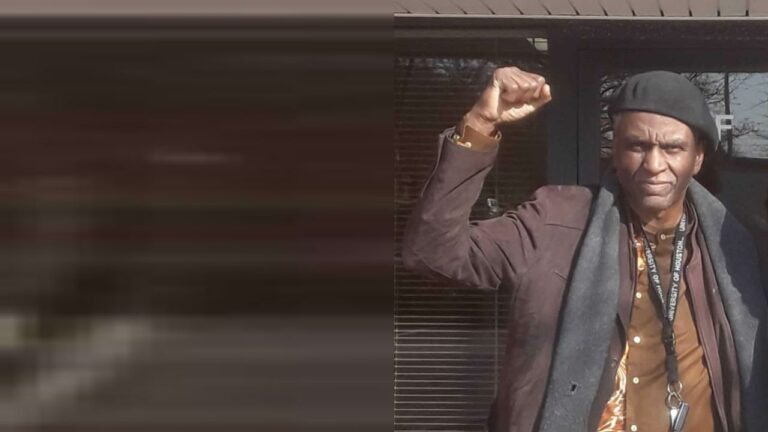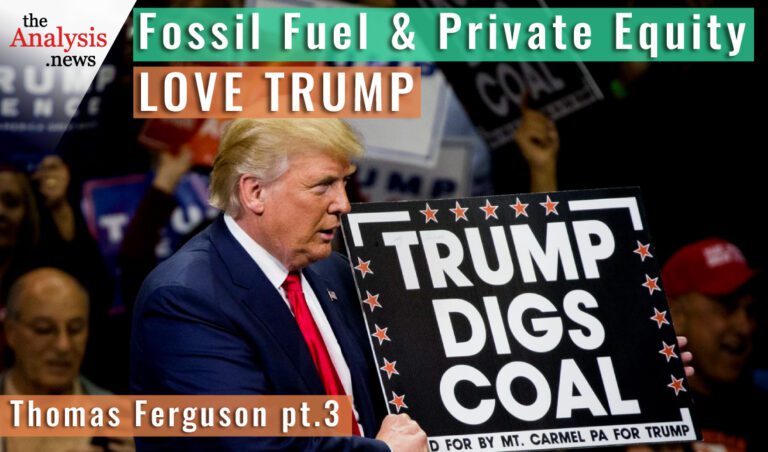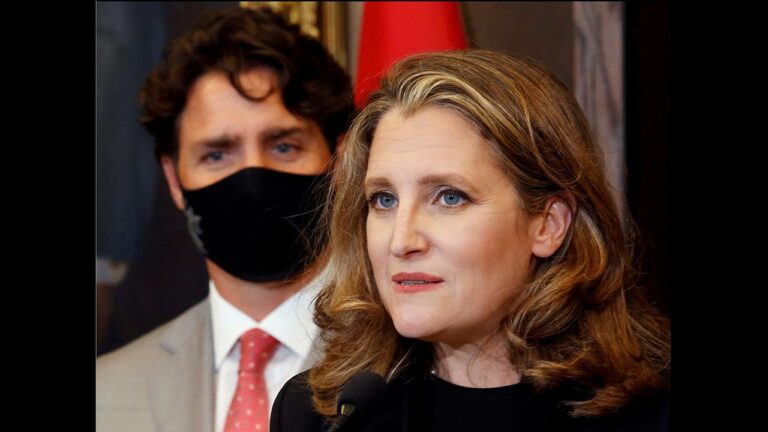Similar Posts

The Price of NAACP Compromise was Too High – Gerald Horne on Reality Asserts Itself (pt 1/6)
This is an episode of Reality Asserts Itself, produced on August 18, 2014. Mr. Horne, author of The Counter-Revolution of 1776, says it was a turning point in the history of black America when the NAACP succumbed to the pressures of the Cold War – the effects of which are still felt today.

Big Tech Censorship or Deal with the Real Problems? – Thomas Frank
The demand by Democrats for Big Tech to censor right-wing conspiracies on social media is a betrayal of the ideals liberals claim to stand for, says Thomas Frank. The real question is why so many people, particularly in rural America, believe such outlandish lies. Thomas joins Paul Jay on theAnalysis.news

Fossil Fuel and Private Equity Love Trump – Thomas Ferguson Pt 3/4
Big oil, coal and parasitical private equity corps highly favored Trump and the GOP in 2020 – and likely will again. Thomas Ferguson joins Paul Jay on theAnalysis.news.

Restructure Capitalism or Fascism Will Grow
Prabhat Patnaik reflects on the COVID-19 shock that has worsened the crisis triggered by globalized finance. Only two possibilities emerge: restructure capitalism by controlling finance, or let the tendencies towards very coercive forms of fascism grow.

Biden vs Trump on Foreign Policy – Medea Benjamin
Code Pink’s co-founder Medea Benjamin, one of the most relentless activists in the anti-war movement, looks at U.S. foreign policy and assesses the candidates for President of the United States. With Paul Jay on theAnalysis.news podcast.

Canada: The Throne Speech Must Include Imposing a Wealth Tax
The speech from the throne is only weeks away. Moments like these — pandemics, depressions, wars — are historical turning points, often marking a time period when fundamental change toward social and economic equality become possible. By Bruce Campbell.

Have long enjoyed Gerald’s analysis. But it was only with this interview that I realized how exciting and profound a scholar he is.
This has been a very interesting analysis. Notice that this is written in the past tense. Now if I wrote, “This is an interesting analysis” it takes on a whole different meaning. Same idea with the writing of history when the historian draws a line between the past and the present. The past is portrayed as radically different than the present and there’s an invisible barrier that can never be crossed because the past is gone forever and never to be lived again by anyone. Then what is history? If you look at the classical historians they were the ones that wrote a grand story of an event that took place in the past and wrote the story to be read in the present. Much of it was written as a tall tale and if read today might be considered a work of fantasy, even a made up fiction. But somehow it’s believed to be true enough to be considered that it really happened. Even if there’s a giant and a three headed monster involved in the narrative. So the question becomes what are the facts in the history so there is truth behind the story? This is where stuff gets tricky because someone might ask, “What really is a fact?”
I don’t mean to sound tedious but history has been written the old way, the grand narrative way, for more than 3000 years and it’s not until we get to the last couple of hundred years that history starts to concern itself with uncovering the facts behind any truth. So when a historian goes to an archive and starts looking at accounting records and finds records about the slave trade then slavery becomes a fact. It really took place. There are records available and are even viewable on google scholar that illustrate slavery happening in real time. Now why did slavery take place? One approach would be to say that slavery became an economic necessity because there was a scarcity of labor in the new world. This might be true but does it really explain slavery? It’s not until you start looking at the belief of race, quite the vogue expression in the 19th century, and a desire to explain slavery as it stood back in the 1850s, that you find one dominant group, namely the southern white slave holders, considering themselves superior over blacks because of their race and running an entire economic system in the south through slavery.
If the writing of history is pushed back to the grand narrative event form then there will be a history that will be less true, more fantasy like, and more twisted to fit a mould created to deceive people. In this situation history will become just plain old bullshit. But if you want a real history you have to have facts to make it up, dress it up, take it out on a night on the town, and come home on the Mail Wagon at the crack of dawn.
Whereas Nietzsche elsewhere lamented a lack of historical perspective, he also compared the historian to the crab: he looks backward so long he begins to think backward too. In the interest of simplification it seems to me you are taking the history as more than it need be to the point it confuses. Or confuses your comment because I’m not quite sure what your point is. I’m not so sure Tacitus didn’t employ facts in his histories. And Howard Zinn made clear who makes real history: the collective actions of ordinary people and their quest for justice.